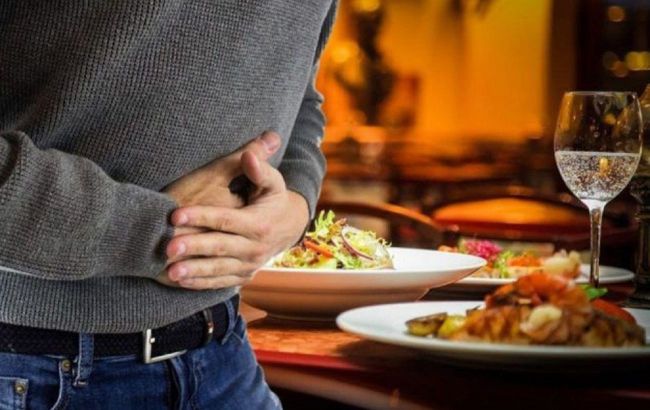Warning on menu: These foods cause most restaurant poisonings
 Photo: What foods in restaurants can cause poisoning (Freepik)
Photo: What foods in restaurants can cause poisoning (Freepik)
Eating at a restaurant should bring pleasure, not health problems. Unfortunately, food poisoning in food establishments is not uncommon.
RBC-Ukraine explains which foods most often cause poisoning in restaurants, why they carry an increased risk, and how to avoid unpleasant consequences, so your visit to a restaurant leaves only pleasant memories.
Top five foods that most often cause food poisoning
According to the Centers for Disease Control and Prevention (CDC) and other health authorities, certain foods consistently top the lists of food poisoning.
Poultry (chicken, turkey)
Raw poultry is often contaminated with Salmonella and Campylobacter bacteria. Insufficient cooking (undercooked chicken, poorly boiled bouillon) or cross-contamination (using the same cutting board for raw and cooked poultry) are the most common causes of poisoning.
Risk in restaurants: chicken dishes, especially fried chicken, nuggets, chicken salads, where cooking or cooling temperature may be inadequate.
Eggs and egg-based products
Eggs can be contaminated with Salmonella either inside or on the shell. Dishes containing raw or undercooked eggs pose a particular risk.
Risk in restaurants: cream-based desserts (tiramisu, custard pastries), homemade mayonnaise, hollandaise sauce, some types of salad dressings, eggs Benedict with runny yolk, cheesecakes or omelets that haven't been properly cooked.
Seafood (fish, oysters, mussels)
Seafood spoils quickly if storage conditions are violated. Raw or undercooked shellfish (oysters, mussels) may contain noroviruses or bacteria. Certain types of fish can cause poisoning (for example, scombroid poisoning from spoiled fish with high histamine content).
Risk in restaurants: sushi, sashimi, oysters, mussels in sauce (if poorly cooked or stored), hot-smoked fish.
Leafy greens and vegetables (salads, spinach, cabbage)
These foods are often consumed raw and can be contaminated with bacteria (E. coli, Salmonella) from polluted irrigation water, manure, or the hands of workers who do not follow hygiene practices. Even when vegetables are washed, it is not always possible to remove all bacteria from the textured surface of leaves.
Risk in restaurants: salads with fresh greens, vegetable platters, salads with cabbage, arugula, spinach that haven't undergone heat treatment.
Prepared dishes and rice-based meals
This especially applies to dishes that are prepared in advance, cooled, and then reheated. Rice, for example, can contain Bacillus cereus spores, which survive boiling. If cooked rice cools slowly and stays at room temperature for a long time, the spores germinate and produce toxins that are resistant to further reheating.
Self-service buffets, Chinese cuisine with lots of rice dishes, and pre-cooked meat dishes stored improperly.
How to protect yourself: Tips for restaurant visitors
Although it's impossible to guarantee complete protection from poisoning, you can minimize the risks:
Choose reputable establishments
Prefer restaurants with a good reputation, positive reviews, and high hygiene standards.
Pay attention to cleanliness
Evaluate the overall condition of the place - clean tables, dishes, and staff uniforms.
Avoid questionable offerings
This especially applies to buffets, where dishes may stand for a long time at improper temperatures.
Order well-cooked meat
If you order meat or poultry, make sure it is thoroughly cooked. Don't hesitate to ask for it to be cooked more if you see pink.
Be cautious with raw dishes
Be especially careful with raw eggs, fish, and seafood if you're not sure about the restaurant's quality.
Wash your hands
Always wash your hands with soap before eating.
Trust your instincts
If a dish looks or smells suspicious, it's better to skip it.
Sources: advices from doctors of the Ukrainian Ministry of Health, State Service of Ukraine on Food Safety and Consumer Protection, CDC.
This material is for informational purposes only and should not be used for medical diagnosis or self-treatment. Our goal is to provide readers with accurate information about symptoms, causes, and methods of detecting diseases. RBС-Ukraine is not responsible for any diagnoses that readers may make based on materials from the resource. We do not recommend self-treatment and advise consulting a doctor in case of any health concerns.

